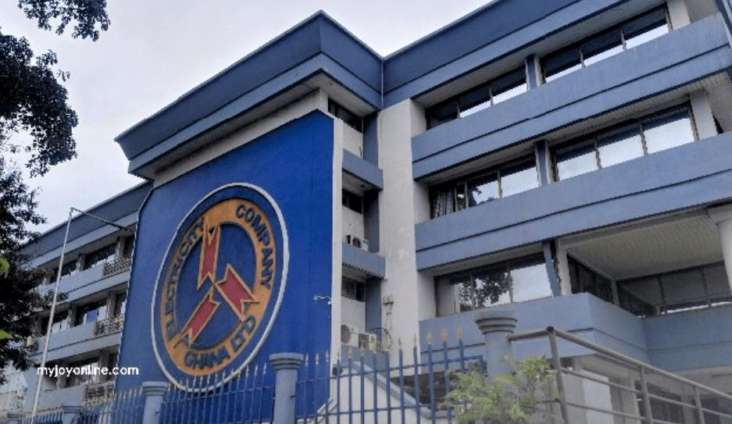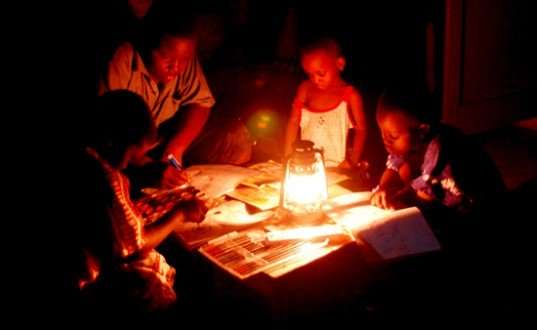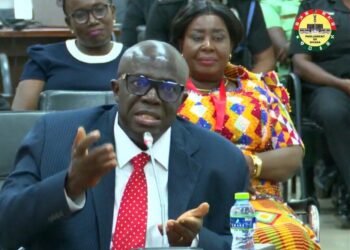As Ghana’s power crisis continues to stir public anxiety, the Ministry of Energy has offered assurances that measures are in place to stabilize electricity supply and avert a looming nationwide blackout.
Speaking to the media, Richmond Rockson, the Ministry’s spokesperson, explained that fresh fuel shipments and broader structural reforms are central to the government’s strategy.
Rockson confirmed that the country is expecting 450,000 barrels of light crude oil (LCO) by the weekend, a key step toward stabilizing power generation.
He clarified that the situation is not as dire as portrayed on social media, noting that aside from LCO, the country still relies on natural gas, which continues to power several thermal plants.
He emphasized that the power crisis goes beyond just fuel shortages and is rooted in systemic issues inherited from the previous administration.
“It shows a bigger picture of the issue that we have in the energy sector. As of December 2024 to this year, we inherited a debt of $3.1 billion. That is excluding the fuel. Beyond that, as well, you look at ECG, and every month there’s a shortfall of about $2 billion. Cumulatively, if you look at that within the year, you’re looking at about $30 billion, including incidental costs. And these are structural problems that, as a country, we have to deal with.”
Richmond Rockson
Rockson also pointed out that the current electricity tariff structure does not include fuel costs, making ECG’s operations unsustainable.
He added that government subsidies are essential for bridging these financial gaps and ensuring the continuity of service.
“So basically, what ECG does is procure the fuels and sell them, but it doesn’t cover the full cost. And every now and then, we’ll have to follow the government of Ghana to be able to support when it comes to these things.”
Richmond Rockson

To address these long-standing challenges, Rockson revealed that the government is considering wide-ranging reforms, including the development of new gas infrastructure.
Rockson further highlighted that transitioning to gas would be more cost-effective.
“If you compare that to LCO, it’s about 50% less than the cost. So the government’s plan is to construct a gas processing plant too, which will mean that the fuel cost that we get, which is about $1.1 billion a year, we can cut down by half.”
Richmond Rockson
Power Crisis Sparks Major Sector Reforms
Furthermore, Richmond Rockson pointed out that transforming the energy sector hinges on tackling several inefficiencies within the Electricity Company of Ghana (ECG).
These include persistent forex losses and technical challenges that have contributed to a staggering 40% energy loss rate—an unsustainable figure for any utility provider.

One of the key reform priorities, he explained, is enhancing revenue collection, especially from government agencies.
He noted that Metropolitan, Municipal, and District Assemblies (MMDAs) have a long-standing history of defaulting on their electricity payments, which significantly undermines ECG’s financial stability.
“The minister has directed that, with the cabinet’s approval, all MMDAs will pay for electricity use. That is one of the challenges that we’ve had in this country. MMDAs do not pay.
“Some [government agencies] are even commercial. Look at Ghana Water, for example. For seven months, not a cedi has been paid to the Electricity Company of Ghana. You can’t consume power and not pay.”
Richmond Rockson
He noted that only a handful of essential government sectors will be exempted from making direct payments for electricity usage. These include the Ministries of Interior, Defense, Health, the Presidency, and Education.

However, this exemption does not mean these institutions will receive free power. Instead, Richmond Rockson clarified that their electricity expenses will be covered by the Ministry of Finance through allocations from their respective budgets under goods and services.
This mechanism ensures accountability while maintaining an uninterrupted power supply for critical state operations.
Addressing growing public anxiety over the nation’s recent fuel shortages and their impact on power generation, Rockson sought to calm nerves by stressing that no scheduled outages—commonly referred to as dumsor—are expected.
He assured that measures have been put in place to keep the lights on and maintain a stable supply of electricity across the country.
“In fact, the people of Ghana, on the authority of my minister and the government of Ghana, I can tell you that we are not expecting any load shedding. The lights will be on.”
Richmond Rockson
He urged calm among Ghanaians, reiterating that the Ministry is actively working to resolve the power crisis. “Nobody should panic. At the end of the day, you’ll have electricity to sleep in.”
READ ALSO: Trump Touts Strong Relations With UAE



















